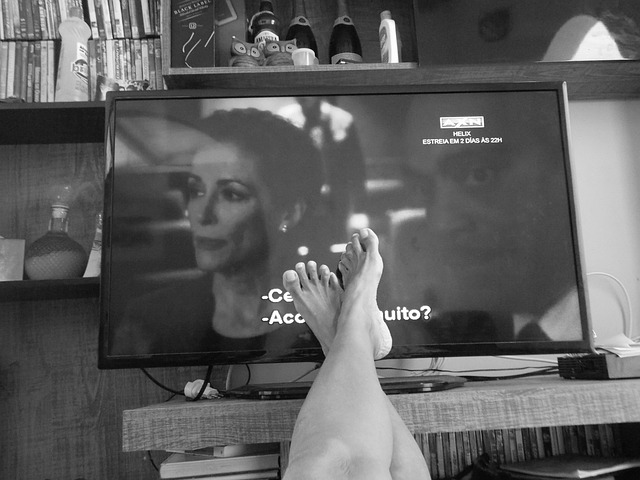The Importance of a Daily Routine
A daily routine serves as the backbone of our productivity and overall well-being. When we establish a routine, we provide ourselves with a framework that allows us to efficiently navigate through our day. This framework helps us dedicate time to essential activities while eliminating distractions that can lead to procrastination. But let’s be honest—creating an effective daily routine that genuinely supports your goals requires thoughtful planning and a clear understanding of what you want to achieve. Without this insight, routines can easily devolve into mundane tasks that do little to propel you forward.
An effective daily routine fosters a sense of discipline. When you make the effort to stick to a schedule, you develop valuable habits that gradually lead to long-term success. Additionally, the psychological benefits of a routine are profound. Knowing that you have a set plan alleviates anxiety and stress. Consequently, you can focus on what’s truly important. As a result, by implementing a daily routine that aligns with your aspirations, you gain clarity about your priorities and tasks.
Identifying Your Goals
Before crafting your daily routine, you need to identify your goals. Goals act as the compass that guides your routine. They can be short-term objectives, like finishing a project by the end of the month, or long-term aspirations, such as achieving a specific milestone in your career. When you have a clear picture of what you want to accomplish, designing your routine becomes a more focused endeavor. Make a list of your goals, ensuring they follow the SMART criteria—specific, measurable, attainable, relevant, and time-bound.
Furthermore, written goals carry more weight. They operate as a constant reminder of what you truly desire, nudging you each day to remain committed. Once you list your objectives, categorize them into various segments of your life, such as career, health, relationships, and personal growth. This categorization allows you to maintain a balance that sustains your well-being while propelling you toward success. Think about how much time you want to allocate to each category daily. Keep your goals visible; whether it’s post-it notes around your workspace or an app on your phone—stay engaged with your ambitions.
Assessing Your Current Routine
Now that you understand the significance of having defined goals, it’s time for a self-check—assess your current routine. This step may seem trivial, but it’s crucial. Keep a log of your daily activities for at least a week to see where your time goes. This can help you pinpoint the areas where you may be spending too much time on unproductive tasks. Gather this information and take a close look at it. You might identify trends—like hours wasted scrolling through social media or binge-watching episodes of your favorite show. Recognizing these patterns empowers you to make informed changes.
Make a list of your daily tasks and rank them based on priority. Ask yourself: Which ones align with my goals? Are there tasks I can delegate or even eliminate? Streamlining your routine starts with awareness of how you currently use your time. Identify time-wasting activities and determine what you can replace them with—activities that nurture your growth. This assessment not only puts you in the driver’s seat but also evokes a sense of accountability. After all, making changes to your routine could lead to significant improvements in both your productivity and state of mind.
Structuring Your Day
When you begin structuring your day, think about creating a balanced yet flexible agenda. Start your day with the most important task. This strategy, known as “eating the frog,” prioritizes high-impact activities that contribute significantly to your goals. Tackling these challenging tasks first can yield a gratifying sense of accomplishment, which propels you forward throughout the day. As the day progresses, schedule breaks, allowing yourself time to recharge. Burnout often sneaks up when you neglect self-care, and short breaks can help you maintain peak performance.
Transitioning through your day may also involve establishing different blocks for activities. For instance, dedicate specific hours for focused work, meetings, exercise, family time, and leisure. By segmenting your time, you allow your brain to adjust to different tasks, which can enhance focus, creativity, and productivity. Remember to revisit and adjust your schedule as needed. Life can throw surprises your way, and while routines provide structure, they should also be fluid. Flexibility is vital. Allow yourself the freedom to adapt when unforeseen circumstances arise, ensuring that you keep your long-term goals in view.
Incorporating Healthy Habits
Every effective daily routine supports your physical and mental health. Incorporating healthy habits is non-negotiable for maximizing your productivity and supporting your goals. Begin by focusing on your nutrition. Consuming a balanced diet fuels your mind and body, allowing you to maintain energy and focus throughout the day. Plan your meals ahead of time to avoid last-minute temptations that lead to unhealthy choices. Consider meal prepping when possible; this can help keep you on track. A nourished body leads to a nourished mind.
Exercise is another pillar of a solid routine. Regular physical activity enhances mood, energy levels, and focus while alleviating stress. Aim for at least 30 minutes a day, whether through brisk walking, biking, yoga, or any form of movement that you enjoy. Additionally, don’t overlook the importance of sleep. Quality rest is fundamental for cognitive function, memory, and motivation. Establish a bedtime routine that allows you to wind down and achieve sufficient rest each night. Prioritizing these healthy habits creates a strong foundation for your daily routine, empowering you to excel in all areas of your life.
Evaluating and Adjusting Your Routine
Creating a daily routine is not a “set it and forget it” scenario. It’s essential to periodically evaluate the effectiveness of your routine. Set aside time each week or month to check in with yourself. Are you making progress toward your goals? Are certain tasks taking longer than expected? Reflecting on your routine can reveal areas that require adjustments. Perhaps you need to allocate more time to a specific project or prioritize certain categories of your life that you might be neglecting.
Gather feedback from yourself. Are you genuinely enjoying the activities within your routine? Sometimes, our routines can become stale, causing motivation to dwindle. Introducing variety can reinvigorate your days, so don’t shy away from trying new things. Experiment with different strategies, tools, or activities to discover what works best for you. Flexibility and willingness to adapt are critical. By honoring the fluid nature of life, you empower your routine to evolve in tandem with your changing aspirations and circumstances.
Staying Consistent
Consistency ultimately drives the success of your daily routine. While flexibility is essential, establishing habits requires discipline. The key to maintaining consistency lies in the application of small, incremental changes. Focus on one or two adjustments at a time, allowing yourself to adapt gradually. This approach prevents overwhelm and fosters sustainable habits. For instance, if you wish to incorporate exercise into your routine, start with just 10 minutes a day. Gradually increase the duration as you build comfort and eagerness for the activity.
Accountability plays a pivotal role in staying consistent. Share your goals and aspirations with a friend or family member. They can provide encouragement when you struggle to hold yourself accountable. Alternatively, consider tracking your progress in a journal or an app. Visualizing growth can boost your motivation, reminding you of how far you’ve come. Stick to your commitments, celebrating small achievements along the way. This acknowledgment reinforces positive behavior and reminds you that you are capable of creating meaningful change.
Balancing Work and Play
While productivity is vital, so is leisure time. A daily routine cannot only consist of work; it should also integrate fun activities and creativity. Make sure to schedule downtime or hobbies that genuinely excite you. Whether it’s reading, painting, cooking, or spending time outdoors, these activities rejuvenate your spirit. They also revitalize your focus and creativity, which can translate into heightened productivity during working hours.
Engaging in social interactions is equally important. Allocate time to connect with family or friends. Building relationships enhances emotional well-being, offering support and shared experiences that enrich your life. Balancing work with recreational time ensures that your routine feels holistic rather than rigid. Life’s most rewarding moments often arise from simple joys, so prioritize that balance in your daily schedule. Remember, a well-rounded life fuels overall happiness and subsequently marks the path toward achieving your goals.
Dealing with Setbacks
Let’s face it: setbacks are part of life. No routine is perfect, and sometimes things will go off course. Embrace the reality that obstacles will arise. How you respond will shape your journey toward achieving your goals. Instead of letting setbacks derail your motivation, use them as learning experiences. Look at difficulties from different angles—what can you learn? Often, setbacks reveal areas where we might need to adjust our routines or strategies. Being kind to yourself during challenging times is essential; self-compassion fosters resilience and encourages persistence.
Consider implementing proactive strategies to minimize setbacks. For instance, if work overloads you, streamline your tasks or prioritize delegation. If time management poses a challenge, explore different scheduling techniques that might resonate better with your work style. Remember that it’s perfectly okay to revisit and modify your goals; changing paths doesn’t equate to failure but rather demonstrates growth and adaptability. Setbacks offer an opportunity for growth and improvement; embrace them as part of the process rather than obstacles.
Final Thoughts
Establishing a daily routine that supports your goals takes time and effort, yet the benefits tremendously outweigh the challenges. The process starts with identifying your goals and assessing how you currently utilize your time. By crafting a structured but flexible daily routine, you incorporate healthy habits and prioritize both work and play. And remember, consistency is crucial; small adjustments made over time lead to significant transformations. By acknowledging setbacks as opportunities for growth and remaining adaptable, you arm yourself with the tools to elevate your life.
Frequently Asked Questions (FAQ)
What is a daily routine?
A daily routine is a structured schedule that outlines specific tasks you aim to accomplish each day. It helps you manage your time effectively and maintain focus on your goals.
How do I identify my goals?
Identify your goals by considering what you want to achieve in various areas of your life. Utilize the SMART criteria: Specific, Measurable, Attainable, Relevant, and Time-bound to refine your objectives.
How can I stay consistent with my routine?
Stay consistent by focusing on small, incremental changes. Track your progress, celebrate small victories, and hold yourself accountable through social connections or journaling.
What should I do if I experience a setback?
When facing a setback, reflect on the situation to understand what you can learn. Be compassionate toward yourself and consider how to adjust your routine or strategies moving forward.
How can I make my routine more flexible?
Incorporate buffer periods in your schedule. Allow for spontaneity, and revisit your routine periodically to ensure it still aligns with your goals and lifestyle changes.



